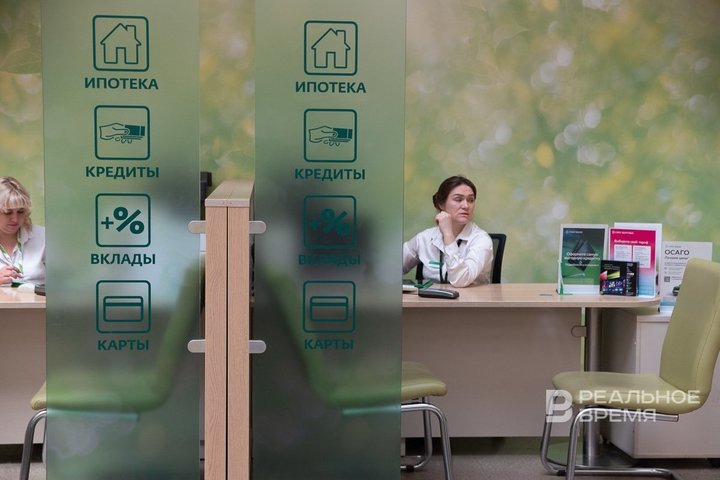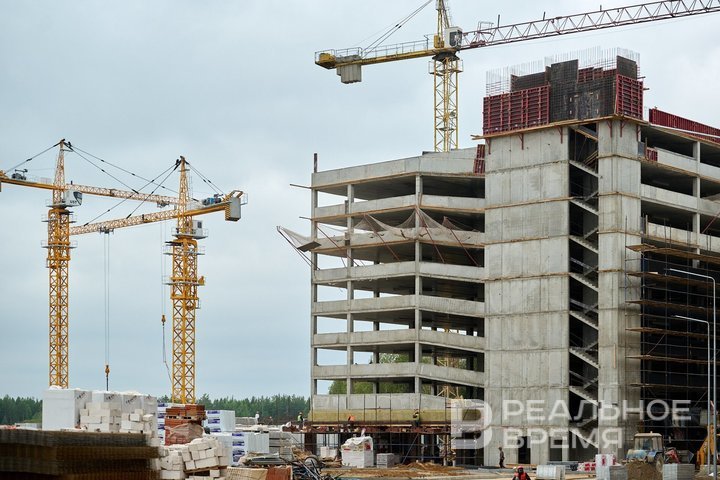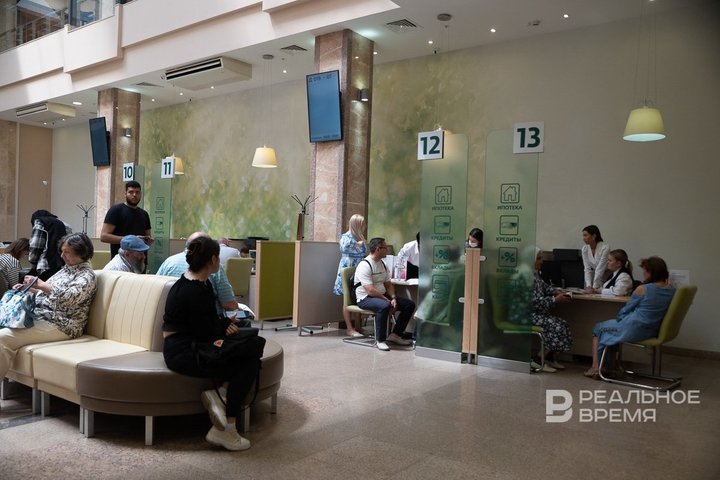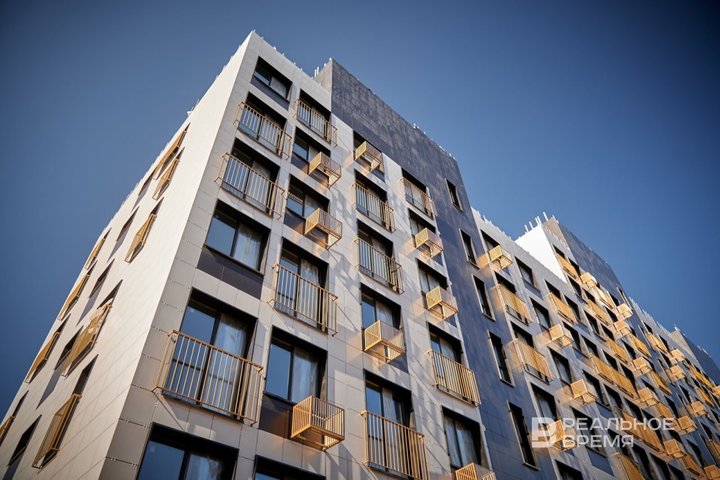‘It will be a very big collapse’: what awaits housing market without affordable mortgage

The average mortgage rate in Russia is approaching 23%. In these conditions, housing loans are becoming not just unaffordable, but financially unprofitable, experts warn. According to them, while the Central Bank's key rate remains high, the housing construction market expects a “severe failure”. At the same time, the industry does not expect a massive reduction in prices for new buildings, although it is assumed that developers with large financial obligations can offer discounts. Read the details in the material of Realnoe Vremya.
Mortgages will inevitably rise in price
The number of mortgage transactions in Tatarstan has decreased by a third: by 28% compared to July, by 33% compared to June. In August, only 6,100 housing loans were issued in the republic against 8,500 a month earlier and 9,100 two months earlier.

In general, the primary housing market of the republic is experiencing a decline: if in July about 1,200 contracts for participation in shared-equity construction were registered, then in August it was already less than 1,000.
This is an all-Russian trend, the housing construction market without massive preferential mortgage programs is expected to stagnate, analysts say. If now loans for the purchase of an apartment are issued at 20-21% per annum, then soon the average mortgage rates will reach even higher levels. “Mortgage rates will inevitably rise. The average rates of 23% are a reality. But there will be few loans at such rates," Sergey Gordeyko, a chief expert at Rusipoteka, told TASS. Since the real estate market depends on mortgage lending, mortgage lending volumes will be extremely low. The speaker called 200,000 transactions per month a norm, for some time the market will live on 100,000, as in July, after which stagnation will begin.

In September, the Central Bank raised the key rate from 18% to 19%, not excluding further increases. As the Central Bank's interest rate rises, mortgage rates are also rising, which is related to the financial lending model.
Apartment sales in Kazan have fallen by 57%, in the agglomeration — by 62%
In the industry, assessing the situation, they declare a decrease in the investment activity of the real estate market. “Now people sell and buy housing mainly out of necessity, only those who really need it take an apartment, there are fewer investors," said Ruslan Sadreev, the vice president of the Guild of Realtors of the Republic of Tatarstan. As in Russia as a whole, housing developers in Tatarstan faced a decrease in demand for new buildings right after the cancellation of preferential mortgages, but at the end of the summer there was a positive trend:


What awaits the housing construction market without such a powerful driver as a massive preferential mortgage in the long term? Pavel Samiev, an economist, director general of the analytical agency BusinessDrom, gives the most likely scenario:

Now, Tatarstan residents, if they take out loans for the purchase of housing, then mainly under the preserved preferential programs — family or IT mortgages. At the same time, due to the new conditions, the circle of borrowers has significantly narrowed.

Currently, according to him, the price gap between primary and secondary housing in the same residential complex — in the case of a sale from a developer or from an individual shareholder — is quite high, it can reach almost 30%. The regulator causes this difference between two identical objects to decrease.
Whether there will be a price reduction in new buildings
Pavel Samiev recalled that the mass preferential mortgage provided 2/3 of the volume of housing loans, respectively, now the number of mortgage transactions will fall “not even at times, but by an order of magnitude in volume”. According to him, this will mean a “huge failure of general demand”, in the total volume of mortgages, the decrease in issuance “may be more than 50%". At the same time, thanks to market subroutines, new buildings will still attract buyers, although not on the same scale as before:
“At such rates, many borrowers are more likely to wait, maybe for a year or two or more, how long the situation will last, and only after that they will take out a mortgage when the rates are lower. Judging by the statements made by the Central Bank on Friday after the rate hike by 1 percentage point, we should not expect the rates to be lowered in the near future — one or two quarters. In principle, it was expected that the cycle of decline could begin no earlier than somewhere in the middle of next year," Samiev noted.

According to him, the summer of 2025 is a realistic time when borrowers will be able to see a different picture of mortgage rates. By that time, accumulated and deferred demand for housing may be formed and positive dynamics will be observed in the market again, the source believes. Provided that the average rate is below at least 18%, this is not possible at current rates.
“Moreover, buyers who have their own funds and fall under the preferential category often consider buying on credit. For example, a 6 million rubles mortgage will be taken out at 6% per annum, and their 6 million will be placed on a deposit at 18% per annum," Ruslan Sadreev gave an example.
Despite the drop in demand and sales of apartments, there will be no massive price reduction in the primary real estate market, according to most of the experts surveyed. According to developers, the price of a square metre of housing is inextricably linked to the economics of construction costs, which depends on the conditions of project financing, the inflation rate, the price of building materials and labour.
Developers are now experiencing a shock, because after several years of rapid growth and comfortable conditions, they are faced with a sharp decline in demand. However, companies will react to these changes in different ways, Pavel Samiev believes. Many people hope to succeed in stimulating sales through their own programs, which the Central Bank opposes, since in this case the cost of an apartment is higher than the market price. One way or another, developers will try to keep prices down — especially those who have a margin of safety, there is no need to pay off large debts, loans, and bond loans.

“But not everyone has this opportunity. Someone has problems with liquidity, and they, accordingly, will give discounts, so there will be very multidirectional dynamics in the market. Somewhere there will be big discounts — developers will try to “dump” objects and greatly reduce the price. Somewhere, on the contrary, they will keep and, despite the fact that it seems like prices should fall, they will keep, even if there are fewer transactions," the speaker pointed out.

Against this background, according to Pavel Samiev, other segments of the real estate market may grow, in particular residential housing, both with and without a mortgage. So far, according to Rosreestr, the demand for individual residential buildings in Tatarstan has practically not changed: in July and August, 1,500 purchase and sale agreements were registered for these objects. Demand for land plots, on the contrary, decreased: the number of transactions fell by 10% — from 8,800 to 7,900. In August, more than 5,500 transactions were registered in the secondary housing market of the republic, which is approximately comparable to July — 5,800.